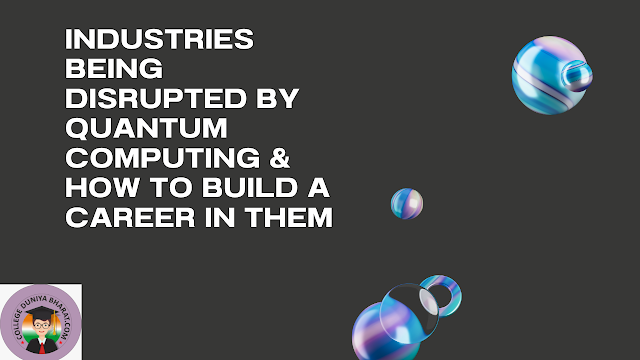Future Trends in Engineering Education – 2030 & Beyond
Future Trends in Engineering Education – 2030 & Beyond
As we approach 2030 and beyond, the landscape of engineering education is evolving rapidly, shaped by technological advancements, industry demands, and changing learner expectations. Traditional chalk-and-talk methods are giving way to immersive, interdisciplinary, and flexible learning environments. Here's a comprehensive look at the future trends that will define engineering education in the coming decade.
1. Integration of Emerging Technologies in Curriculum
One of the most transformative trends will be the seamless integration of technologies like Artificial Intelligence (AI), Machine Learning (ML), Internet of Things (IoT), Blockchain, and Quantum Computing into the engineering syllabus. These technologies are not just supplementary; they are becoming central to engineering roles across industries. By 2030, students will no longer study these as electives, but as core components of every major engineering discipline.
Engineering institutions will likely adopt simulation tools, virtual labs, and augmented reality (AR)/virtual reality (VR) platforms to give students hands-on experience without the limitations of physical labs.
2. Project-Based and Experiential Learning
The future of engineering education lies in learning by doing. Institutions will increasingly adopt project-based learning (PBL), capstone projects, hackathons, and real-world challenges that push students to apply concepts in practical ways.
This approach helps bridge the gap between theory and practice, improving problem-solving and critical thinking skills. Collaborative, interdisciplinary projects will be emphasized, reflecting the real-world scenarios engineers face in professional settings.
3. Personalized and Adaptive Learning Paths
With AI and data analytics, future education platforms will provide personalized learning paths tailored to individual student needs, learning speeds, and interests. Adaptive learning systems will identify weak areas and deliver targeted content to improve understanding.
These intelligent platforms will help students choose specializations or micro-credentials aligned with industry demand and personal career goals, moving away from rigid, one-size-fits-all curricula.
4. Rise of Interdisciplinary Engineering
Modern problems are complex and rarely fall within a single discipline. Engineering education is already moving toward interdisciplinarity — a trend that will dominate by 2030. For instance, students might study combinations like robotics and healthcare, or mechanical engineering with data science.
Universities will encourage modular course structures, allowing students to take electives across domains such as design thinking, business management, and sustainability, fostering innovation and entrepreneurial thinking.
5. Global Collaboration and Remote Learning
The pandemic normalized remote learning, and it’s here to stay — but in more advanced, engaging forms. Engineering education will embrace hybrid models that combine in-person labs with online lectures and collaborative projects across borders.
Global classrooms will allow students from different countries to work on the same projects, attend guest lectures from global experts, and gain exposure to cross-cultural engineering practices. This prepares students for the global nature of modern engineering careers.
6. Emphasis on Soft Skills and Ethical Engineering
While technical knowledge remains critical, soft skills such as communication, teamwork, emotional intelligence, and ethical decision-making are increasingly in demand. By 2030, engineering courses will formally include modules on ethics, sustainability, leadership, and diversity to create responsible engineers who can think beyond equations.
Institutions will partner with industries to offer leadership training, internships, and mentorship programs that develop both technical and interpersonal abilities.
7. Continuous Learning and Industry Collaboration
Engineering education will no longer end with a degree. The fast-paced nature of technology requires lifelong learning. Micro-degrees, online certifications, and upskilling programs will become standard, supported by platforms like Coursera, edX, and university-industry collaborations.
Engineering colleges will build deeper ties with companies to ensure that curriculum stays relevant and students are job-ready upon graduation. Co-designed courses, industry-sponsored labs, and faculty exchanges will become commonplace.
Conclusion
The future of engineering education is dynamic, inclusive, and deeply connected with real-world applications. By 2030, we’ll see a holistic education model that nurtures innovation, embraces technology, and prepares engineers to be global leaders. The fusion of technology, humanity, and sustainability will shape a generation of engineers ready to solve the most pressing challenges of the 21st century.

.png)


Comments
Post a Comment